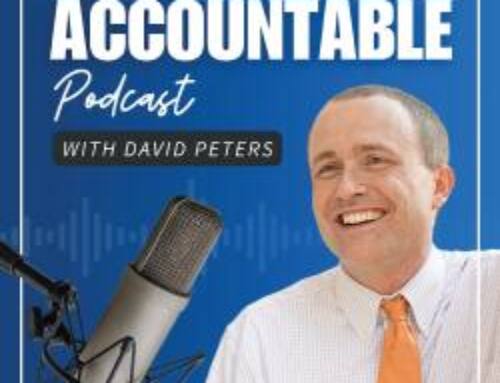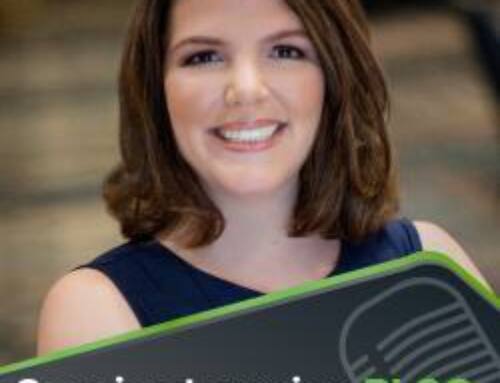South Carolina stands out with its particular rules for journeying CPAs; and don’t forget your obligations in your former home
By David R. Peters, CPA | SCACPA Member Since 2016
Note: David R. Peters, CPA, is SCACPA’s advisor and speaker on Business and Industry topics.
Change is an unavoidable part of life, whether it is our social circles, family situations or careers. Perhaps at no time are CPAs more aware of the necessity of change than when we move across state lines. Amidst the natural nervousness and excitement that comes with loading the moving van, accounting professionals have the additional challenge of relocating from under the watchful eye of one state’s Board of Accountancy and into the supervision of another.
At first glance, these regulatory aspects can seem overwhelming. However, with forethought in the areas of licensing, continuing education and proper notice, you can make a smooth transition.
One of the unique aspects of the CPA profession is state by state regulation. Just because you are a CPA in one state does not mean you are a CPA everywhere. When you move, it is important to know how to go about getting licensed in your new state. The process to re-establish your license in a new state is often not nearly as arduous as it was to earn your license the first time. However, you still must prove that you meet the new state’s licensing requirements.
Generally, you will need to have your CPA Exam scores sent to the new state, fill out an application for licensure, and pay a fee to the new state’s Board of Accountancy. There also might be unique requirements to be addressed. For example, while every state generally has an ethics requirement, not all states have the same ethics requirement. A state might require you to take a specific ethics course for licensure that is different from the one you are used to taking in your former state. A state might require character references or an oath before you can receive your new CPA license. These requirements can often be the ones that slow down the application process and cause frustration for new CPAs. Often the best move a new CPA can make is to reach out to the new state’s Board of Accountancy to ask about the application process at least a few months before moving if time allows.
Another thing to be aware of is differences in continuing education requirements. While every state requires CPE, how CPE is counted and what constitutes CPE may be different from one state to the next. South Carolina has a requirement that one may only obtain up to 10 hours of CPE in any one calendar day. Most other states have no limitation.
Many states have a yearly requirement for CPE (usually 40 credits) based on a calendar year. However, this is not always the case. The Commonwealth of Virginia requires 120 hours of CPE on a rolling three-year basis. Additionally, some states have a fiscal year end to their CPE year. Similarly, CPE in one state might not always count as CPE in another state. At the time of this writing, Virginia counts passing the Certified Financial Planner (CFP) exam as 30 credits of CPE. Other states award no credit for this exam.
Perhaps the most common CPE divergence among the states is in the area of the ethics class. Some states simply require a CPA to take two hours of ethics each year. Other states require a specific ethics class. South Carolina requires a regulatory ethics class to be taken every three years. A behavioral ethics class may be taken in the other years.
While the variations and exceptions are seemingly endless, one saving grace for a new CPA is that most state Boards of Accountancy post their continuing education requirements on their website. This can help a new CPA plan out CPE in the most advantageous way possible and avoid falling into the tempting trap of thinking that all CPE requirements are the same.
Finally, it can be easy to forget about the remaining obligations to your former state. Most states require a CPA to give notice (often within 30 days) after you change your address. This rule helps ensure that a CPA receives any notices and communications that the board may send out. Also, if you plan on continuing to do business in your old state after you move, you should make sure that you understand your licensing obligations in your former state as well. A state might require you to register with them, or in some cases, maintain a license with them, depending on the type of work you are doing, who your employer is, and whether you maintain an office in your former state. In short, your obligations to your former state don’t end after you move. It often takes weeks to work through this transition.
While the regulatory aspects of a move to a new state can seem like a lot, the best strategy is to just ask questions in advance. Your employer in the new state might be able to assist in some areas, but as a CPA you alone are responsible for making a successful transition. Therefore, a better move is often to reach out to the Board of Accountancy directly.
Remember, BOAs want you to be in compliance – so they are often very willing to help. Lean on them. This will make your move smooth from a regulatory side, allowing you to focus on other things – like finding out how to volunteer for the new state’s CPA society, and figuring out what color to paint your new place!
David Peters is the founder and owner of Peters Tax Preparation & Consulting in Richmond, Virginia, a financial advisor for Peters Financial LLC in Rock Hill, and SCACPA’s advisor and speaker on Business and Industry topics. He has more than 14 years of experience in financial services, including three years in the hedge fund industry and six years in insurance. Contact him at david@davidpetersfinancial.com with your questions and comments.
A version of this story appears in the blog AICPA Transitions.
Peters Financial, LLC
454 S. Anderson Road, Suite 124, Rock Hill, SC 29732
804-332-1373
Registered Representative offering securities through Cetera Advisor Networks LLC, member FINRA/SIPC. Advisory services offered through Carroll Financial Associates, Inc., a Registered Investment Adviser. Carroll Financial and Cetera Advisor Networks, LLC are under separate ownership and are not affiliated with any other named entity.



